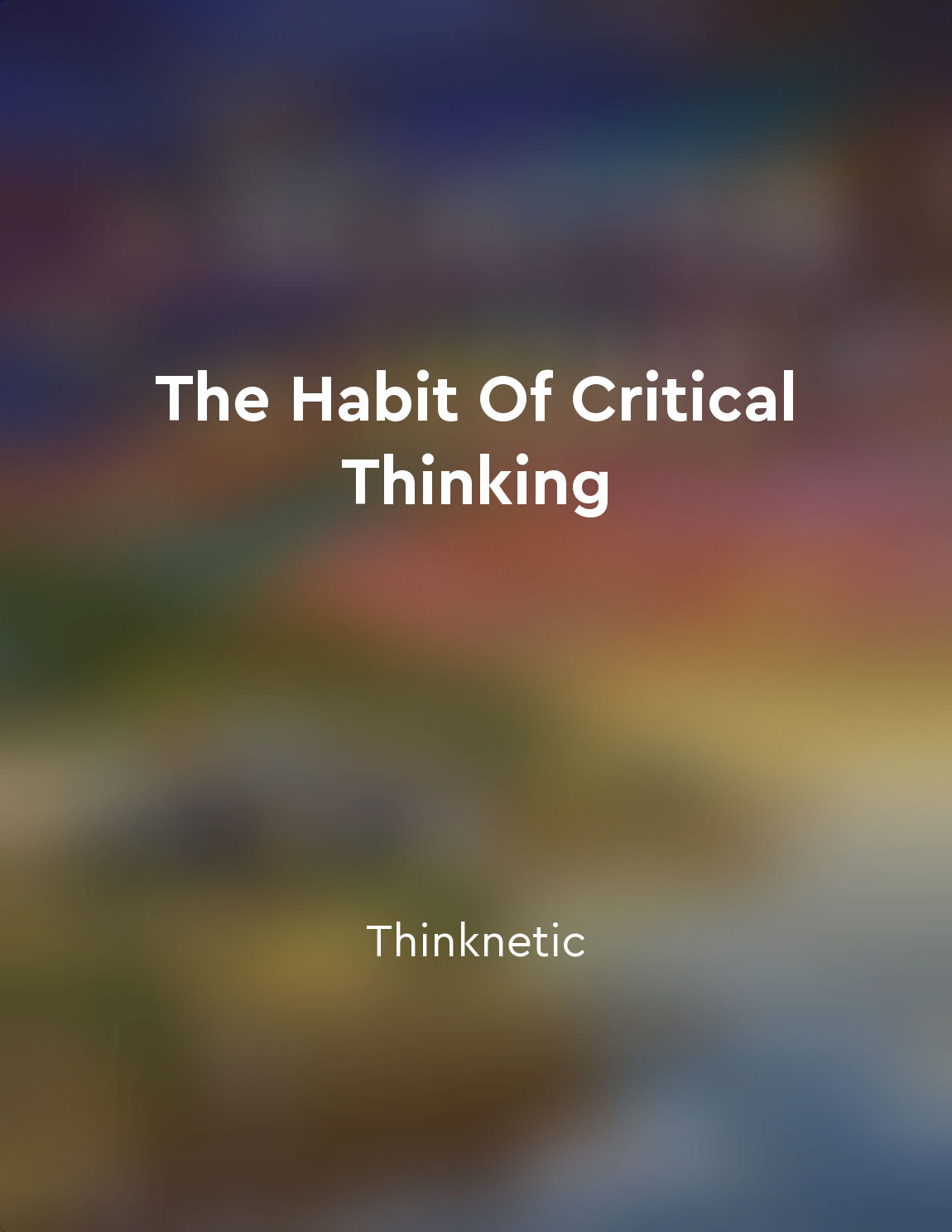Audio available in app
Avoid biases from "summary" of The Habit Of Critical Thinking by Thinknetic
Biases are preconceived notions or prejudices that can cloud our judgment and lead us to make decisions based on faulty reasoning. It is essential to be aware of our biases and actively work to avoid them in order to think critically and make sound judgments. One common bias is confirmation bias, where we seek out information that confirms our existing beliefs and ignore evidence that contradicts them. This can prevent us from considering alternative perspectives and evaluating information objectively. To avoid confirmation bias, we must be open to new ideas and willing to challenge our own assumptions. Another bias to be cautious of is the availability heuristic, which occurs when we rely on information that is readily available to us, rather than seeking out a more comprehensive and accurate picture. This can lead to oversimplified conclusions and overlook important factors that may not be immediately apparent. By expanding our sources of information and considering a variety of perspectives, we can overcome the limitations of the availability heuristic. Closely related to the availability heuristic is the recency bias, where we give more weight to information that is more recent in our memory. This can skew our perception of reality and lead us to overlook long-term trends or patterns. To counteract the recency bias, it is important to take a step back and consider the bigger picture, rather than being swayed by the most recent information. In addition to these biases, we must also be mindful of our own emotions and how they can influence our thinking. Emotional biases, such as the halo effect or the negativity bias, can cloud our judgment and prevent us from seeing things clearly. By acknowledging our emotions and taking a step back to assess them objectively, we can avoid making decisions based on emotional impulses.- The key to avoiding biases is to cultivate a habit of critical thinking and approach information with a skeptical mindset. By questioning our assumptions, seeking out diverse perspectives, and evaluating evidence objectively, we can overcome biases and make more informed decisions.


